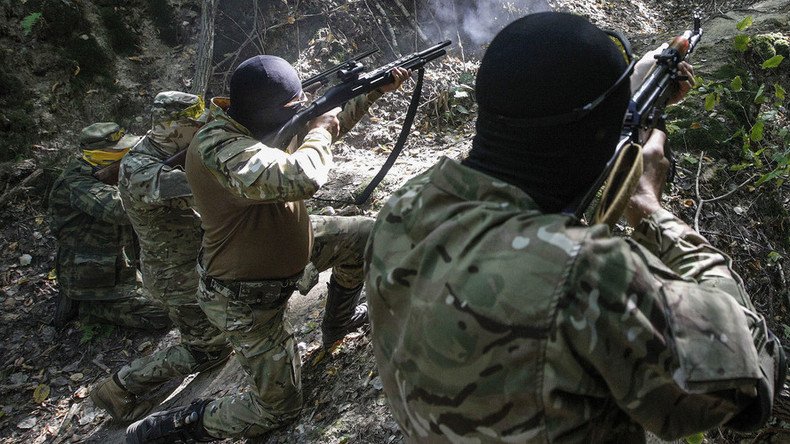Ukrainian witch-hunt site wants its own Pokémon Go to find ‘Russian terrorists’

Inspired by the international success of the augmented reality game Pokémon Go, the notorious Ukrainian website that collects personal data of people it brands as terrorists wants to develop a similar website to gamify its witch-hunting.
Dubbed “PokemonRu”, the app for Android and iOS mobile devices will require “players to hunt for hiding Russian mercenaries and Russian military criminals, aka Pokemons, in cities where they live, and covertly track their movements,” the Mirotvorets website described its vision.
“Information about Pokemons is rewarded with bonuses, which may be monetized after reaching a certain level. Players can also identify new Pokemons and submit data on them via an interactive map, complete with geolocation data,” the project description goes.
The website promises team-stalking and a hunt for “trickier monsters” to experienced players and stresses that “if somebody takes it for a joke or trolling, he is very wrong.”
The witch-hunting website is advertising jobs for programmers able to develop the so-called game. It says the app will use Mirotvorets’ database to pick targets.
Mirotvorets ('Peacemaker' in Russian) is a website collecting information on people who are suspected by its administrators of links with rebels in Eastern Ukraine. Technically independent, it apparently has close links to Ukrainian government and military and is reportedly widely used by Kiev’s troops deployed in the east to screen local residents passing checkpoints.
The website encourages visitors to submit data and doesn’t disclose its verification mechanism, if any.
READ MORE: Top Ukraine official backs idea 'to help ISIS take revenge on Russian soldiers in Syria’
The website drew international criticism in May, when it published personal data of thousands of foreign journalists who reported from the rebellious areas and got accreditation from their de facto authorities. Mirotvorets administrators branded them as “terrorist collaborators.”
Facing pressure from Ukraine’s foreign sponsors, the website was briefly shut down but swiftly reopened, taunting its critics by leaking more journalist data.
At least two prominent Ukrainian public figures were killed shortly after their personal info, including home addresses, was added to Mirotvorets’ database.














